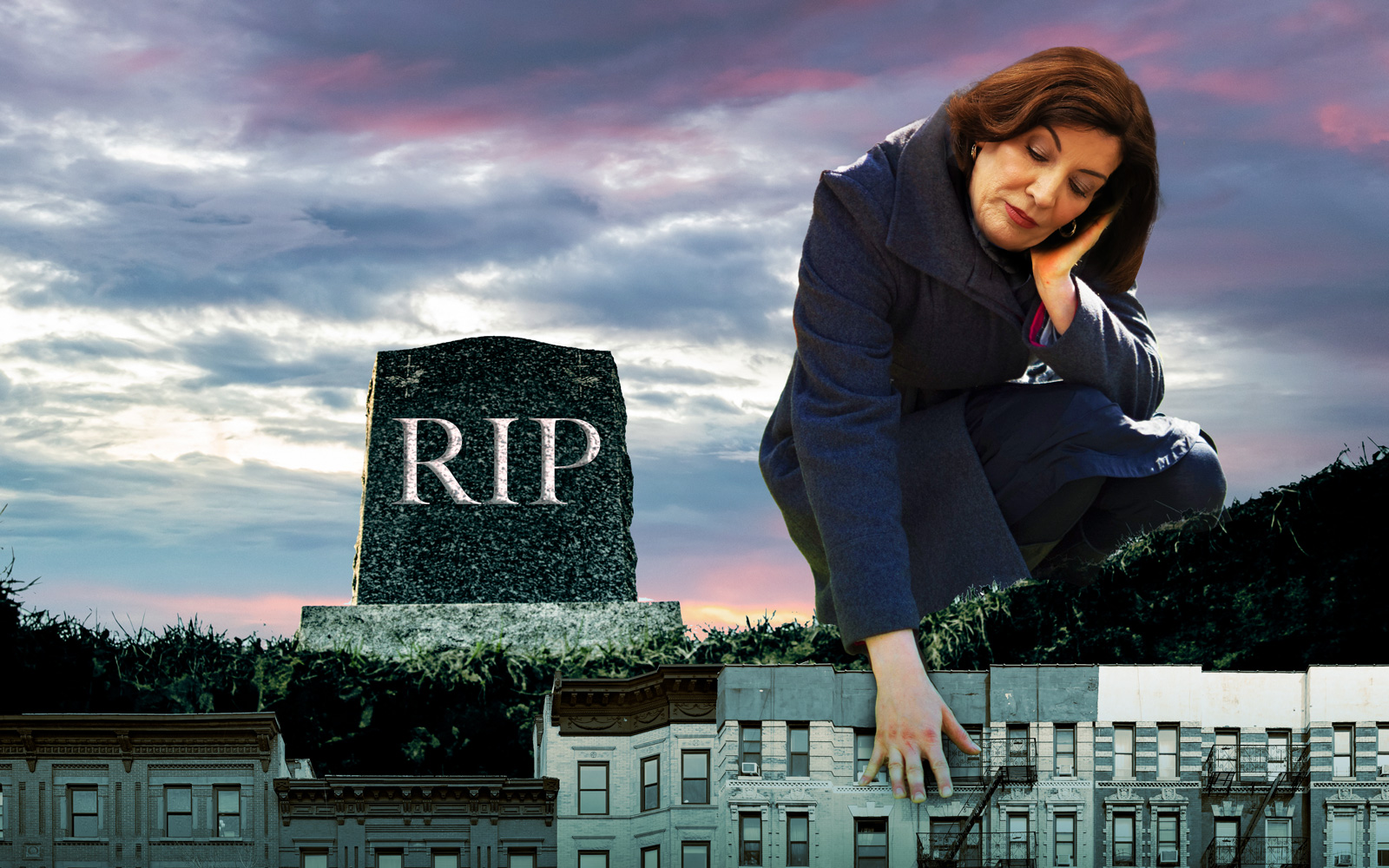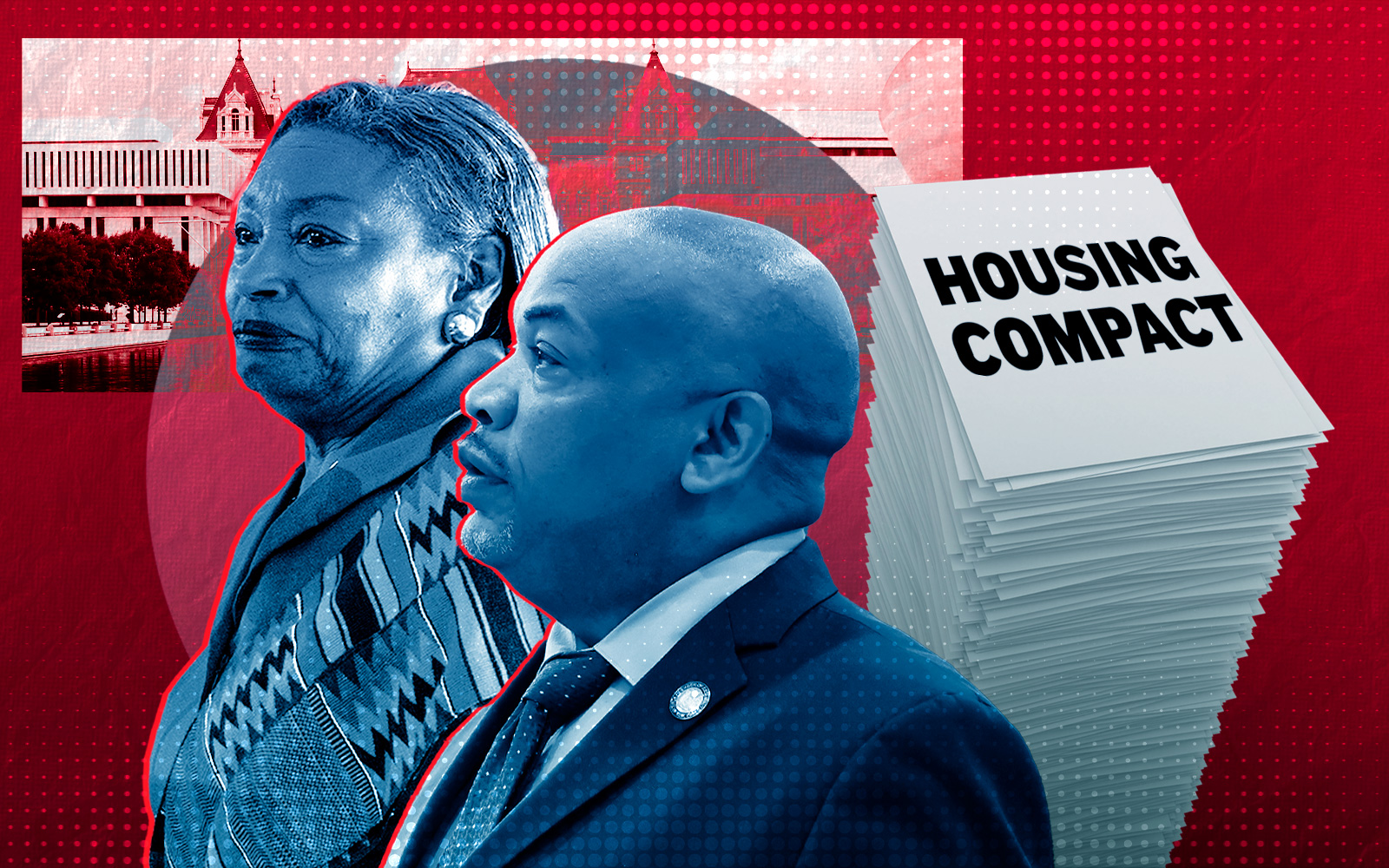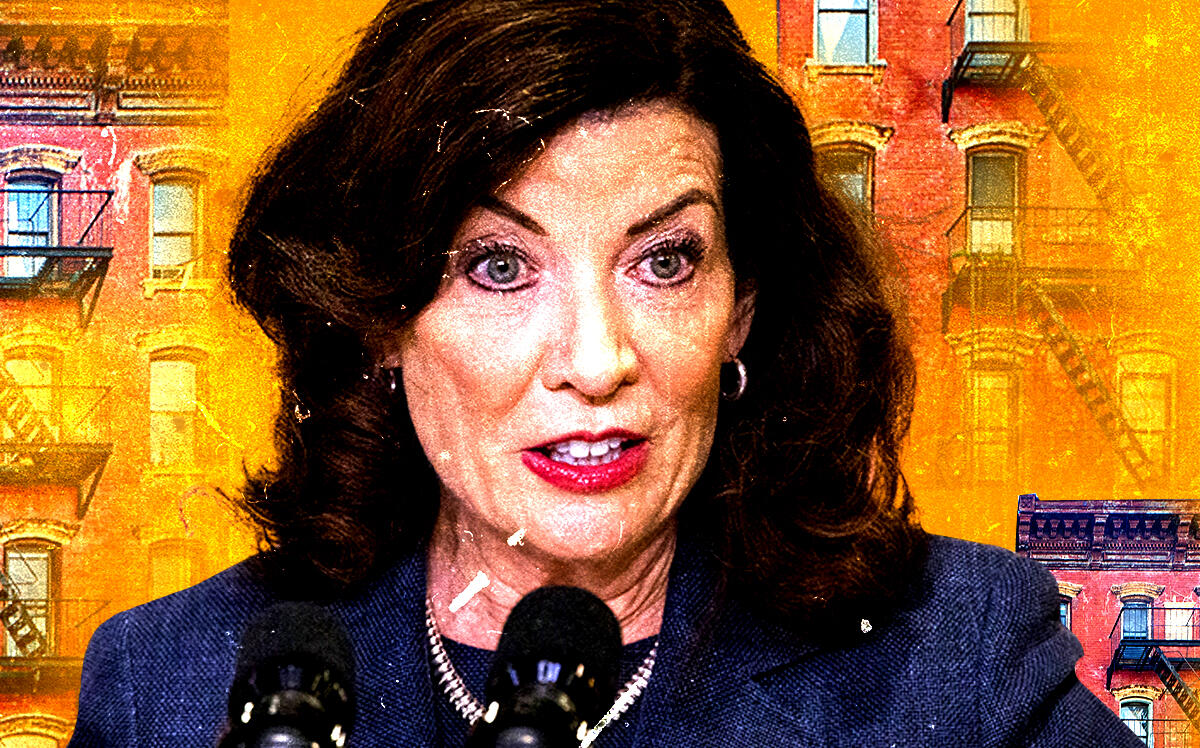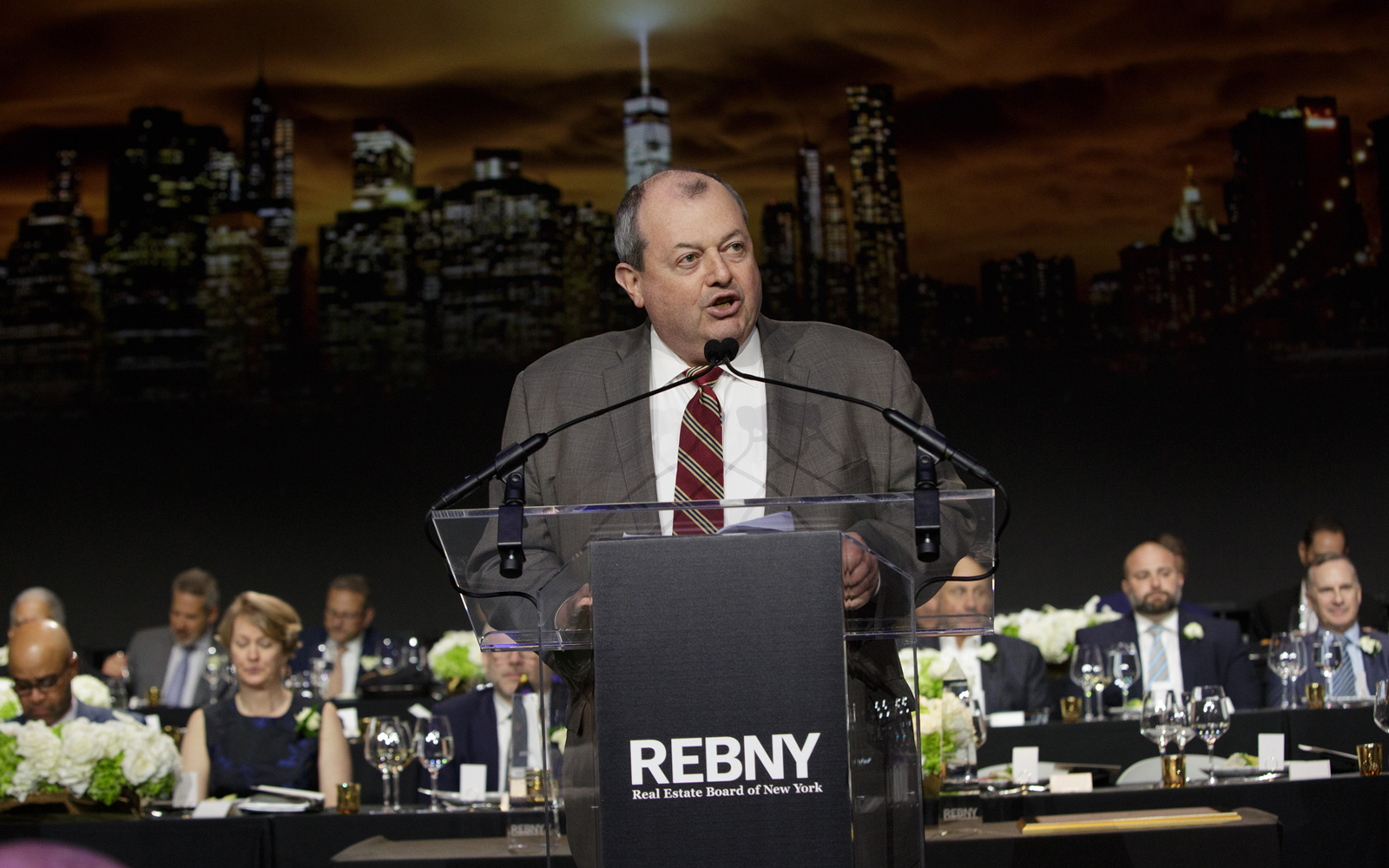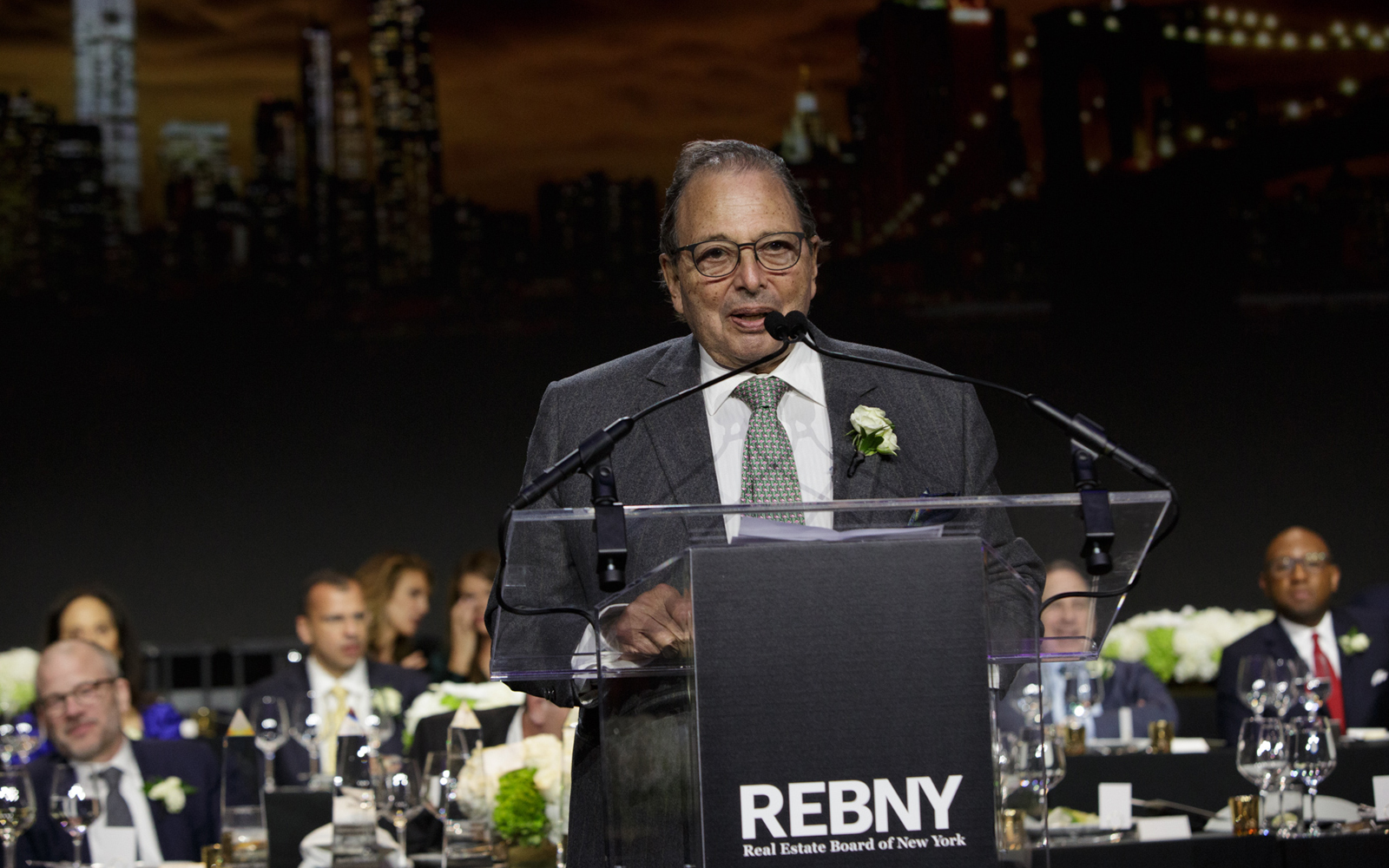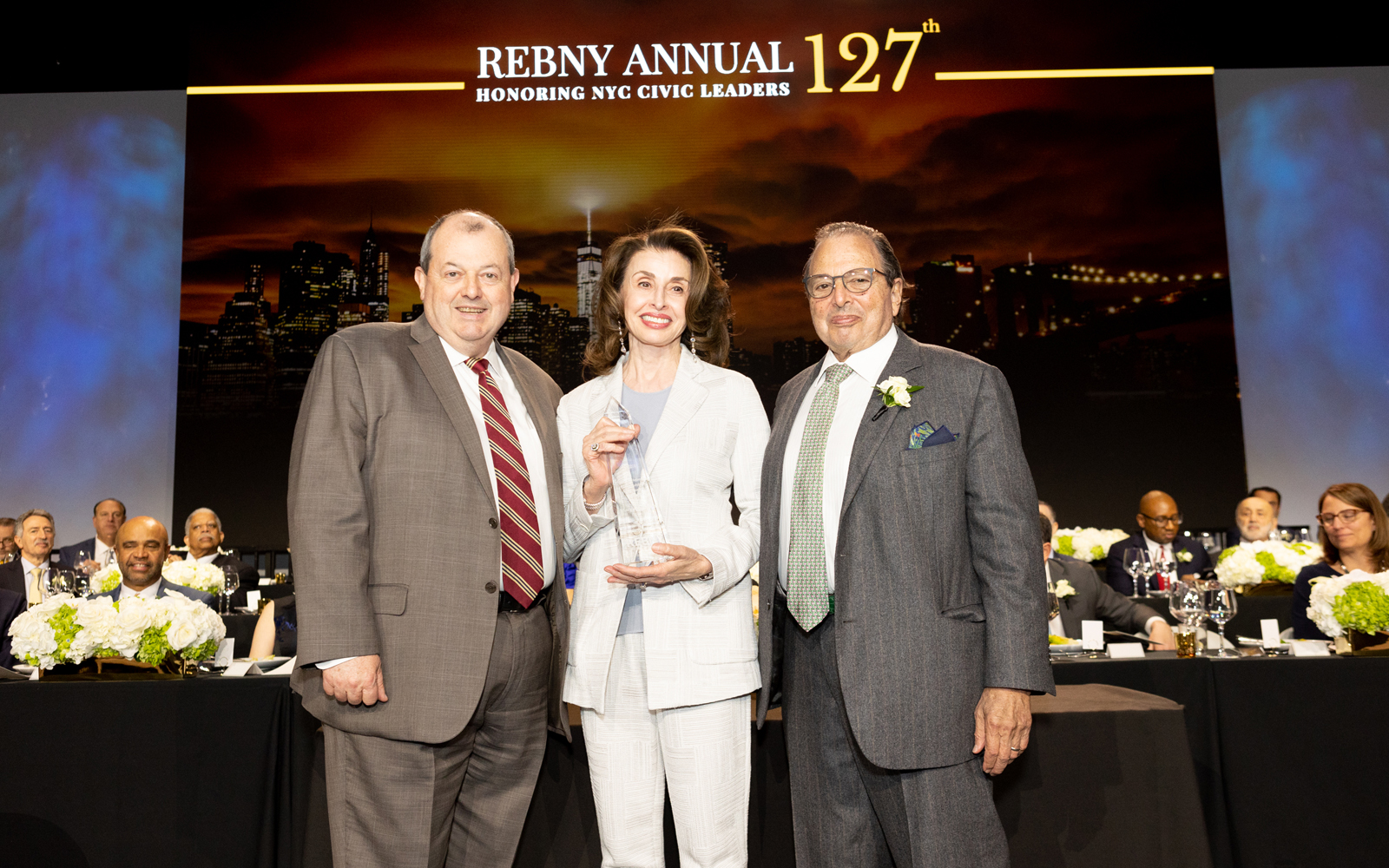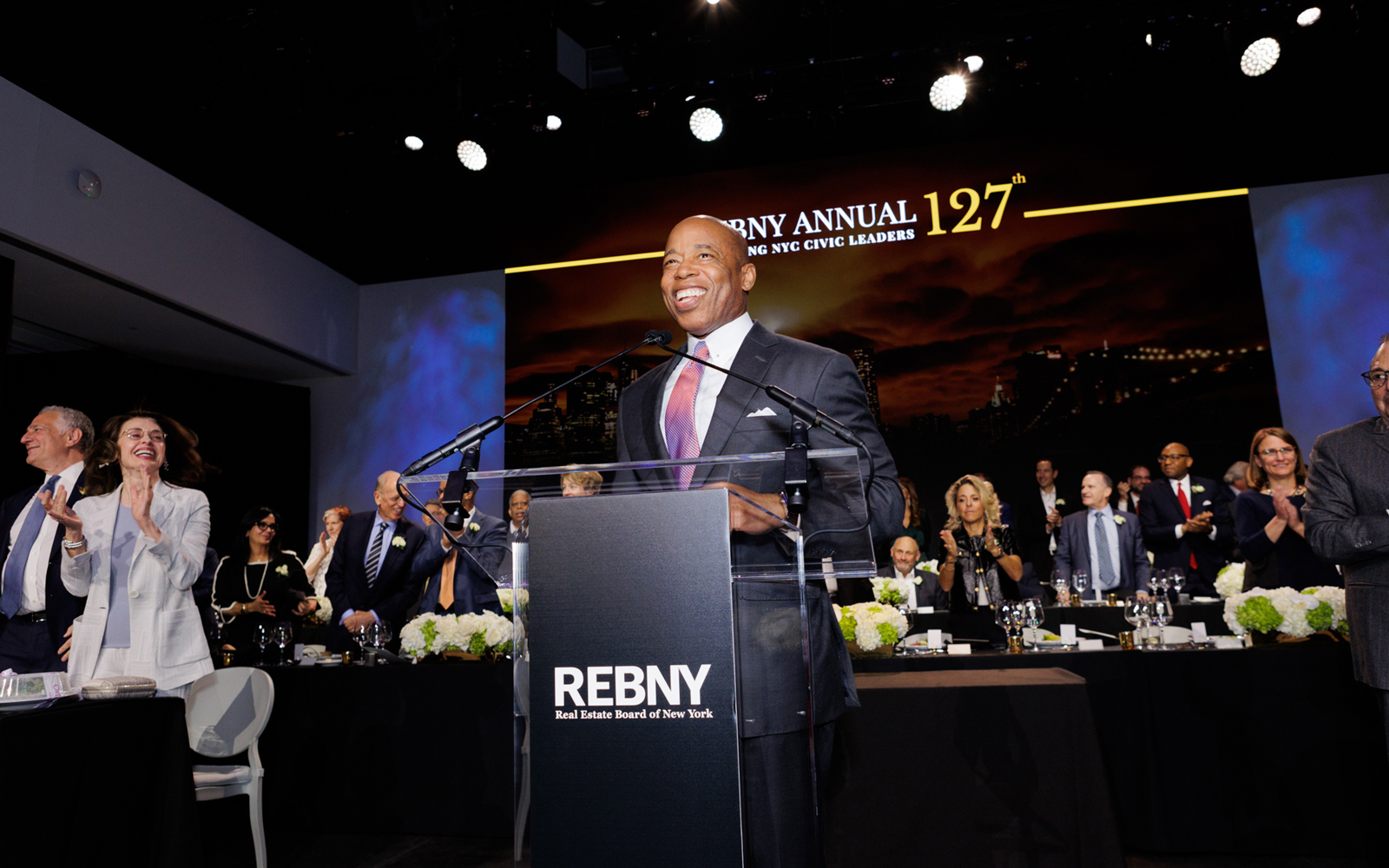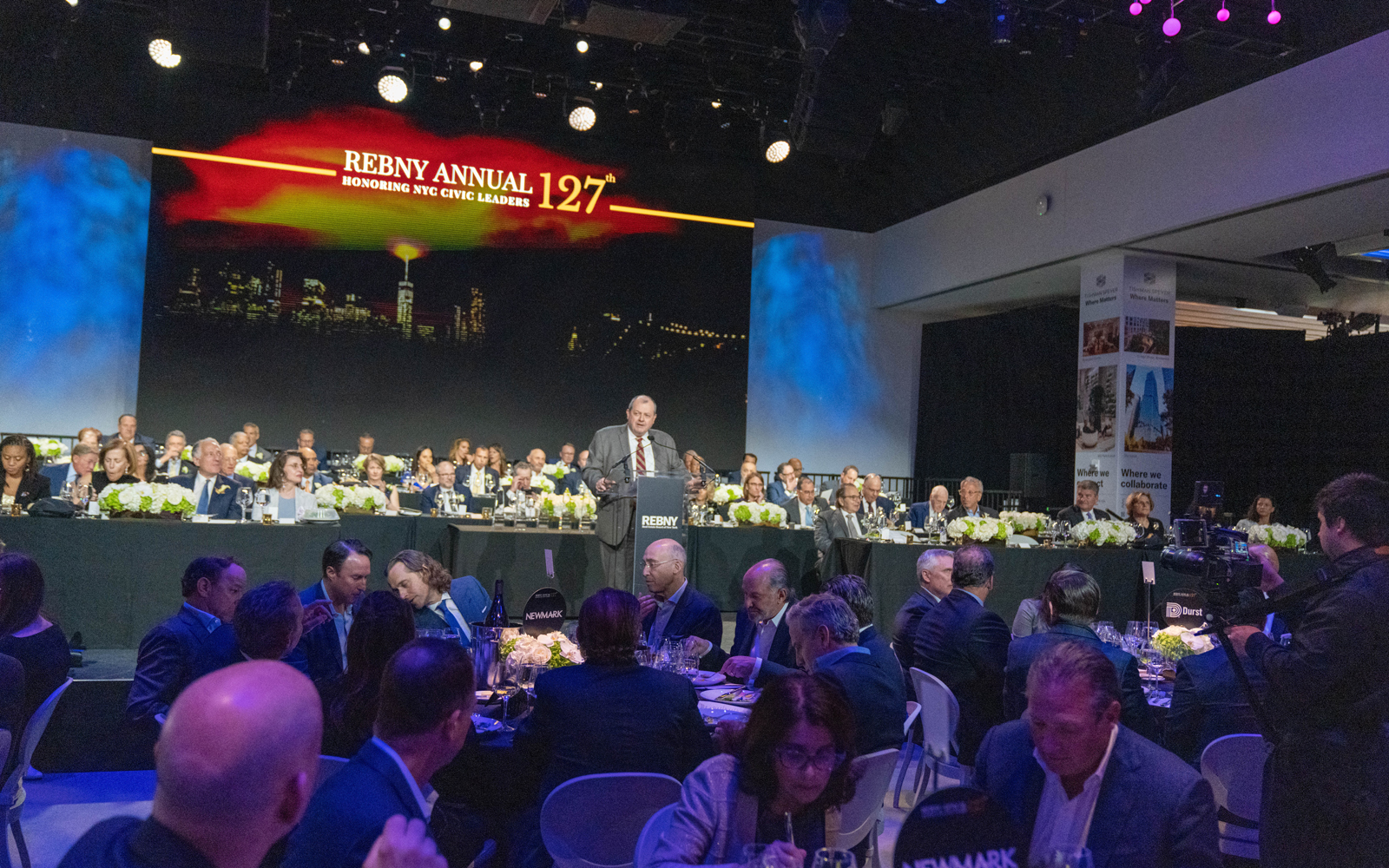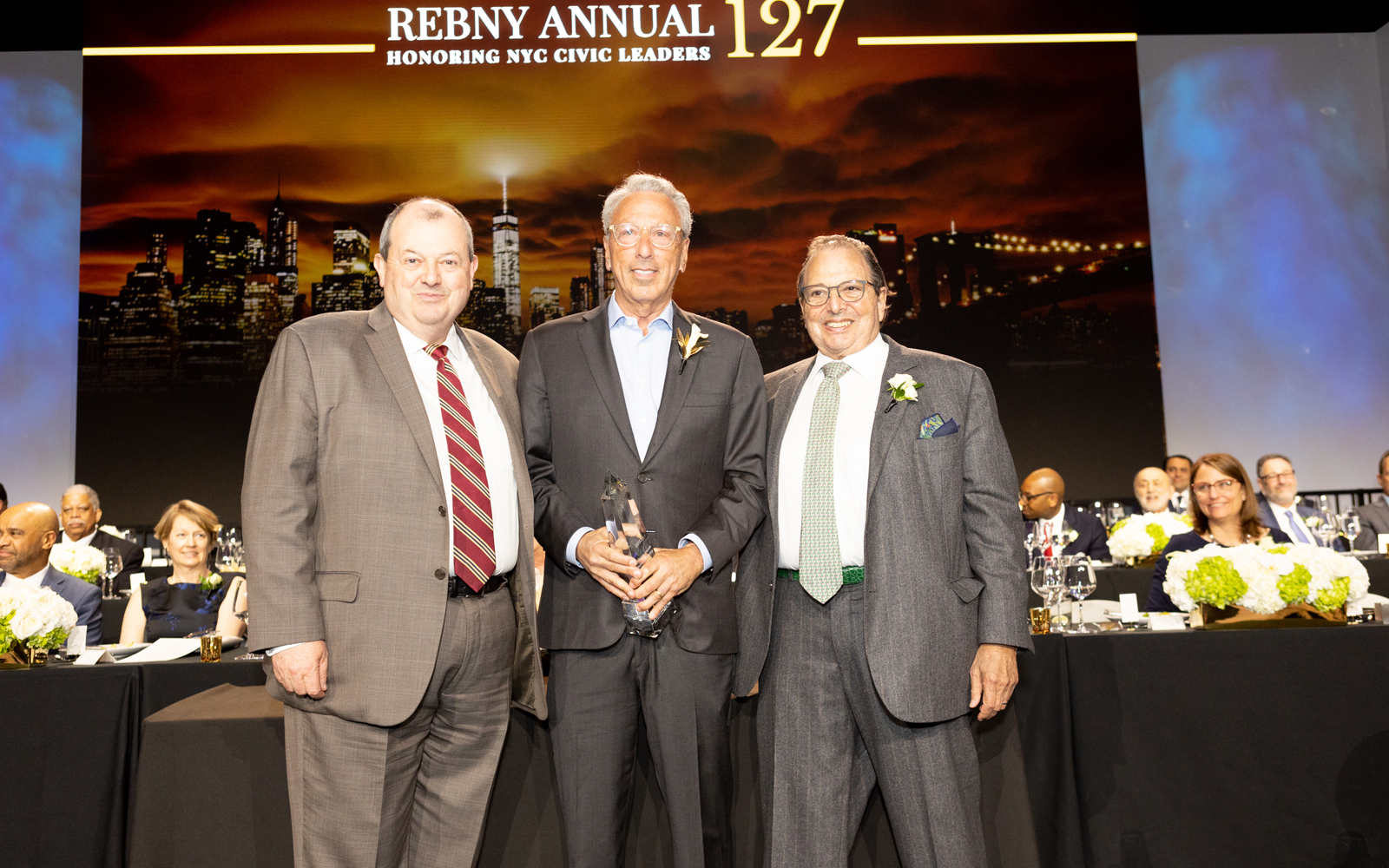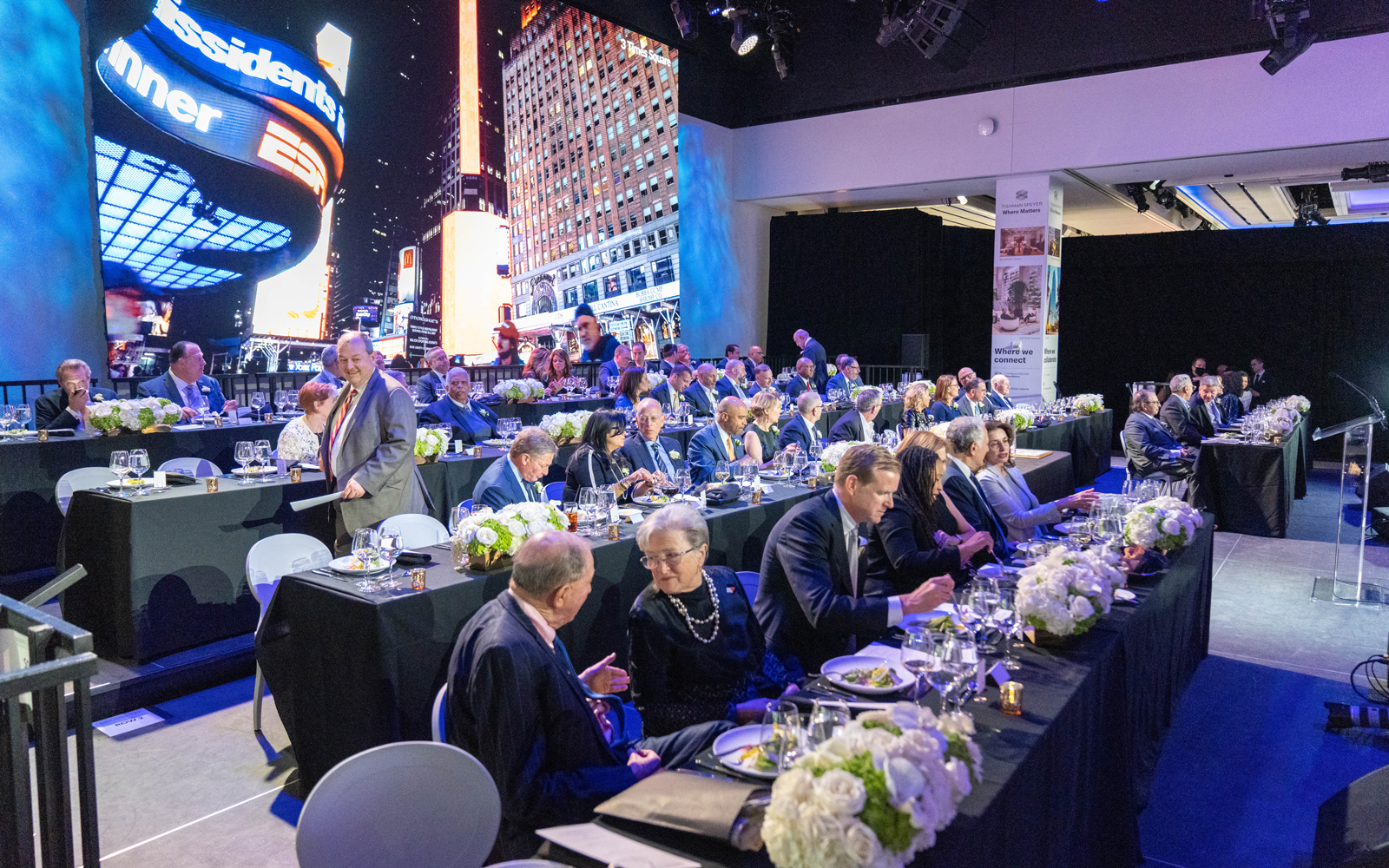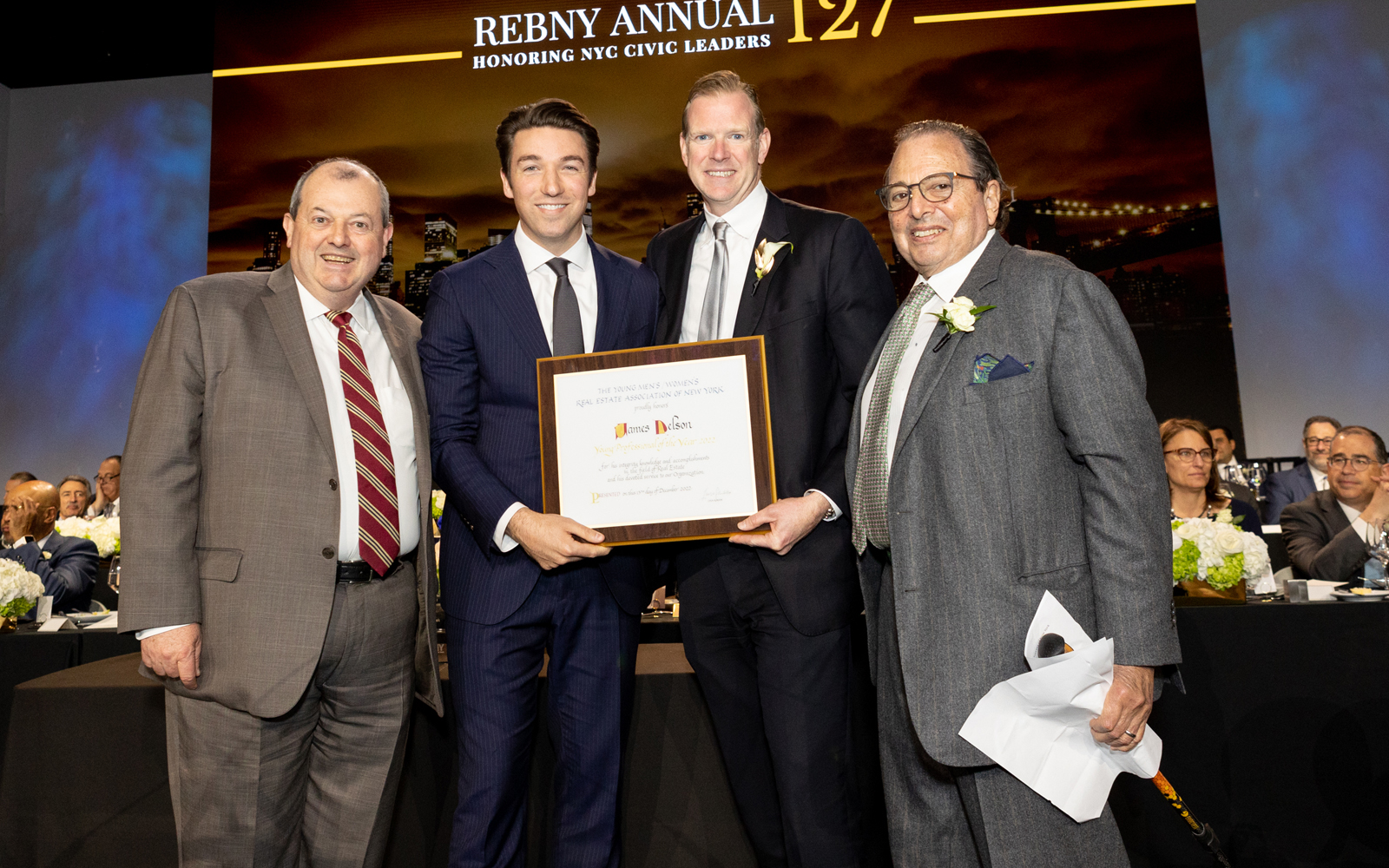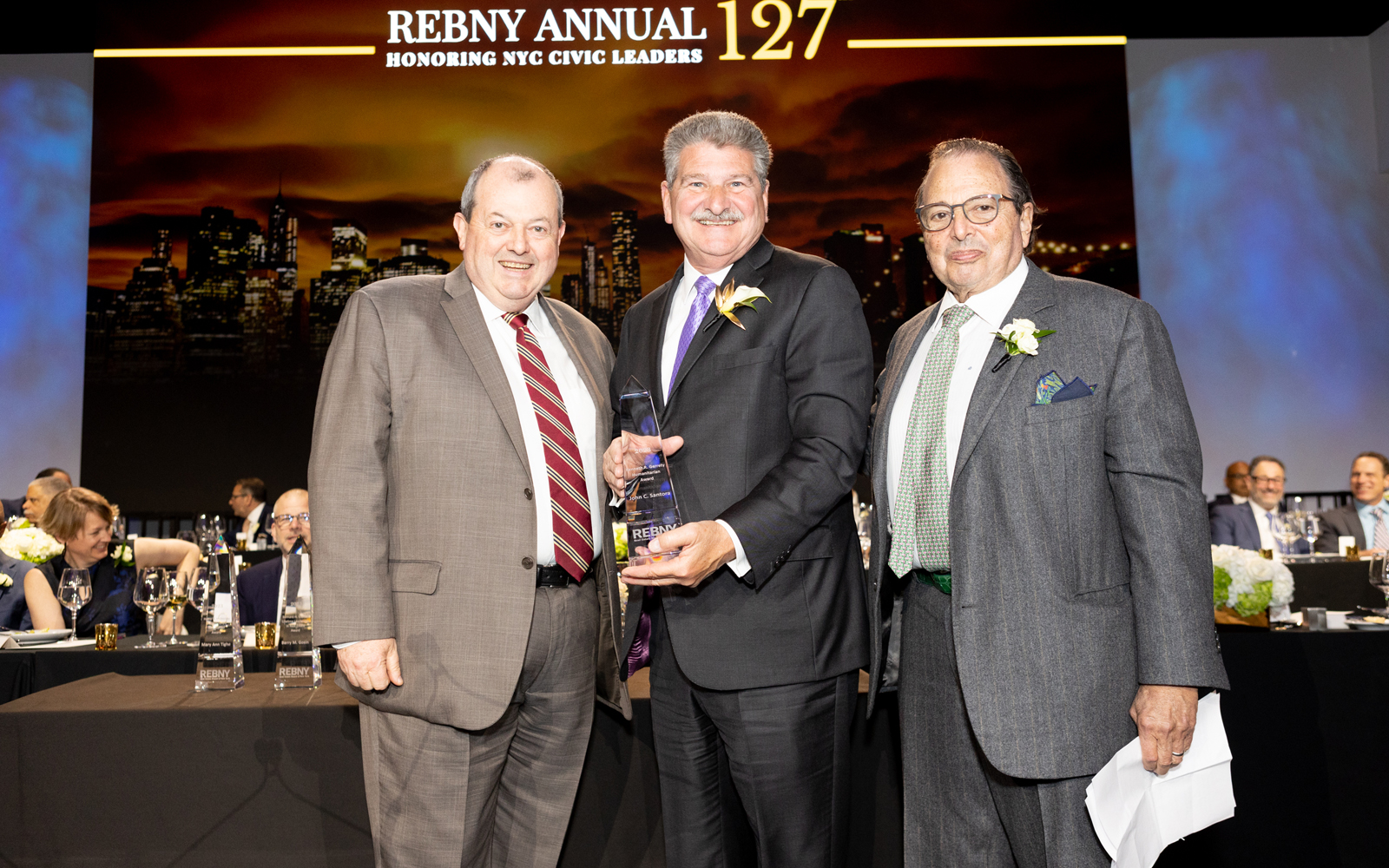Without state action, New York City’s housing goals are sunk.
Hours after news surfaced that the governor’s housing plan had fallen apart, Mayor Eric Adams appealed to a crowd of some of the biggest names in city real estate to help revive it.
“Not getting a deal in Albany, you may think it does not impact you, but it impacts all of us,” he said, while speaking at the Real Estate Board of New York’s annual gala Thursday evening. “We need a housing deal in Albany this year. We need it. It impacts us all.”
“If we don’t get 421a, then we cannot build affordable housing,” he said. “If we don’t have affordable housing, then you won’t have employees who are able to stay in this city.”
If the state does not lift the city’s residential floor area ratio cap, he said, then the city can not move forward with its hopes to convert millions of square feet of office space into housing.
“This is all for nothing. We gotta get a deal. We must make sure that that housing agenda is back on the table,” said the mayor, who has faced criticism for asking the city’s housing agencies to cut their budgets by 4 percent.
He urged the real estate professionals to push their elected officials on these issues, noting that politics need to be “built into your business plan.”
“We need your voice,” he said.
Not as many state officials attended the gala this year compared to last, in part because of the ongoing budget negotiations. Gov. Kathy Hochul initially expected to make an appearance, according to a number of attendees, but she ultimately did not show up.
But state Attorney General Letitia James was there, as was Sen. Leroy Cromie and state Comptroller Thomas DiNapoli, as well as several City Council members and borough presidents.
Politicos weren’t always a given: In the years immediately leading up to the pandemic, elected officials largely shied away from the event. But the last two years have seen a considerable shift, both in terms of attendance and tone.
The gala, held at the Glasshouse on the Far West Side, has evolved over the years from a black tie event to a more modern, schmooze-focused party. Bars in the VIP reception area featured signature cocktails and a commitment to elevating guests’ experiences: A request for water at one station was met with mild dismay, and negotiated up to a sparkling water with lime.
Last year’s event did away with the sit-down dinner, and was more of an extended cocktail hour, seemingly acknowledging the desire of attendees to network.
This year’s event revived the dinner portion of the night, which was sandwiched between a cocktail hour and afterparty.
Televisions throughout the room led to a fun jumbotron-like moment, when developer MaryAnne Gilmartin realized she and Brown Harris Stevens CEO Bess Freedman were projected on the screens chatting.
The format may be different, but some things remain a constant of the gala: The biggest names in city real estate. To name a few: Douglas Durst, MaryAnn Tighe, Bill Rudin, Daniel Tishman, Jeffrey Levine, Bob Knakal, Pam Liebman and Leslie Himmel.
What also has not changed is that speakers and the evening’s honorees must compete for the attention of a chatty audience.
“I have been to enough REBNY banquets to know that the least interesting person at the gala is whomever is speaking at the front of the room,” said Durst, who noted that Thursday’s gala was his last as REBNY’s chair. “I will not be as brash as my father who recited the Gettysburg Address from this podium 35-odd years ago.”
(The late Seymour Durst apparently had his own way of acknowledging that people were not paying attention.)
The market downturn and the likely exclusion of any housing policies were popular topics throughout the night.
“State legislative leaders, through their actions and inactions, are making the city’s housing crisis worse,” said REBNY President Jim Whelan. “And the commercial market has challenges that we need to work through.”
But he and the mayor both struck a hopeful note about the city’s future. As did Durst.
“Will the office market collapse? Will work from home be the new normal? Will the MTA ever finish the Second Avenue Subway?”
Ever the optimist, Durst said the answers are, in order: No, no, and yes.
Read more
